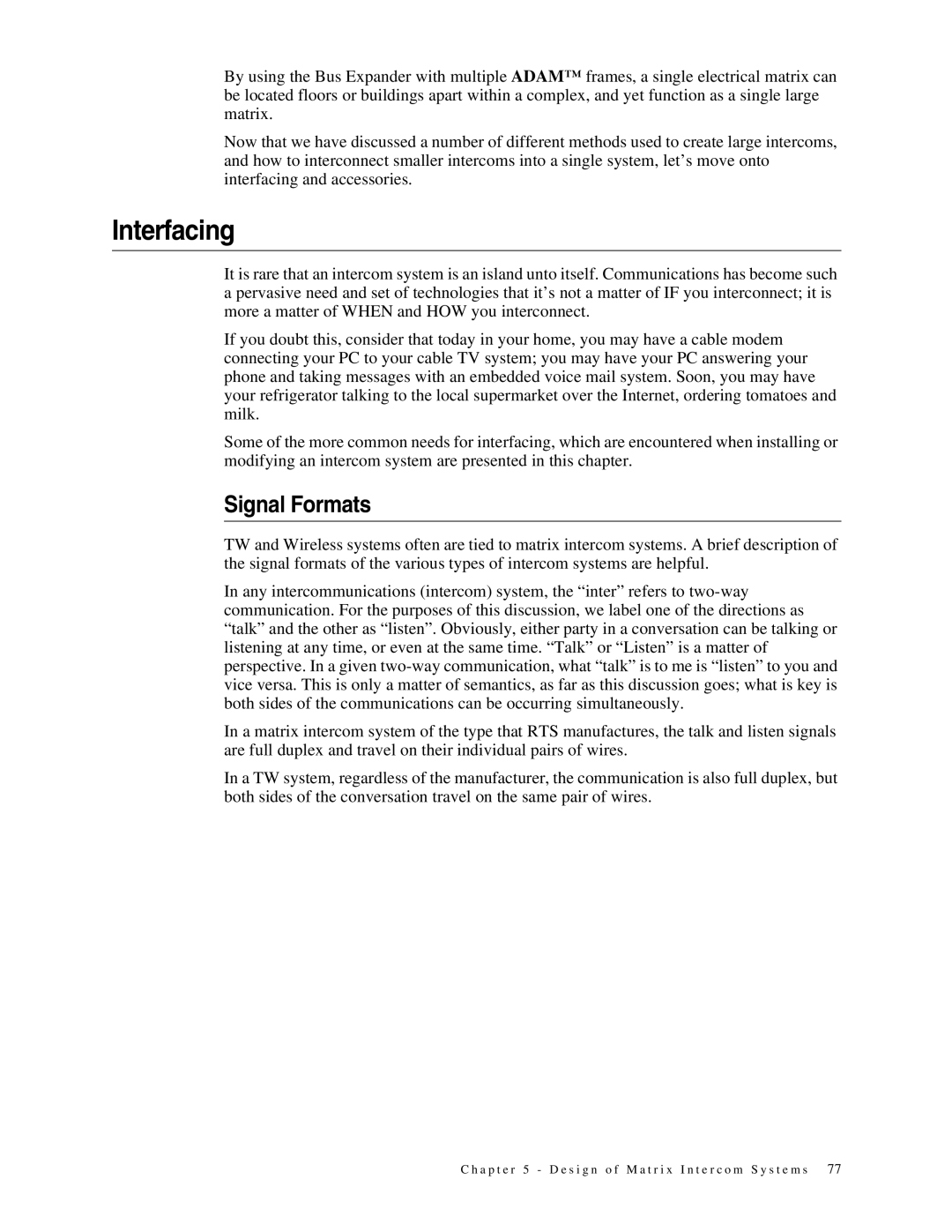
By using the Bus Expander with multiple ADAM™ frames, a single electrical matrix can be located floors or buildings apart within a complex, and yet function as a single large matrix.
Now that we have discussed a number of different methods used to create large intercoms, and how to interconnect smaller intercoms into a single system, let’s move onto interfacing and accessories.
Interfacing
It is rare that an intercom system is an island unto itself. Communications has become such a pervasive need and set of technologies that it’s not a matter of IF you interconnect; it is more a matter of WHEN and HOW you interconnect.
If you doubt this, consider that today in your home, you may have a cable modem connecting your PC to your cable TV system; you may have your PC answering your phone and taking messages with an embedded voice mail system. Soon, you may have your refrigerator talking to the local supermarket over the Internet, ordering tomatoes and milk.
Some of the more common needs for interfacing, which are encountered when installing or modifying an intercom system are presented in this chapter.
Signal Formats
TW and Wireless systems often are tied to matrix intercom systems. A brief description of the signal formats of the various types of intercom systems are helpful.
In any intercommunications (intercom) system, the “inter” refers to
In a matrix intercom system of the type that RTS manufactures, the talk and listen signals are full duplex and travel on their individual pairs of wires.
In a TW system, regardless of the manufacturer, the communication is also full duplex, but both sides of the conversation travel on the same pair of wires.
C h a p t e r 5 - D e s i g n o f M a t r i x I n t e r c o m S y s t e m s 77
